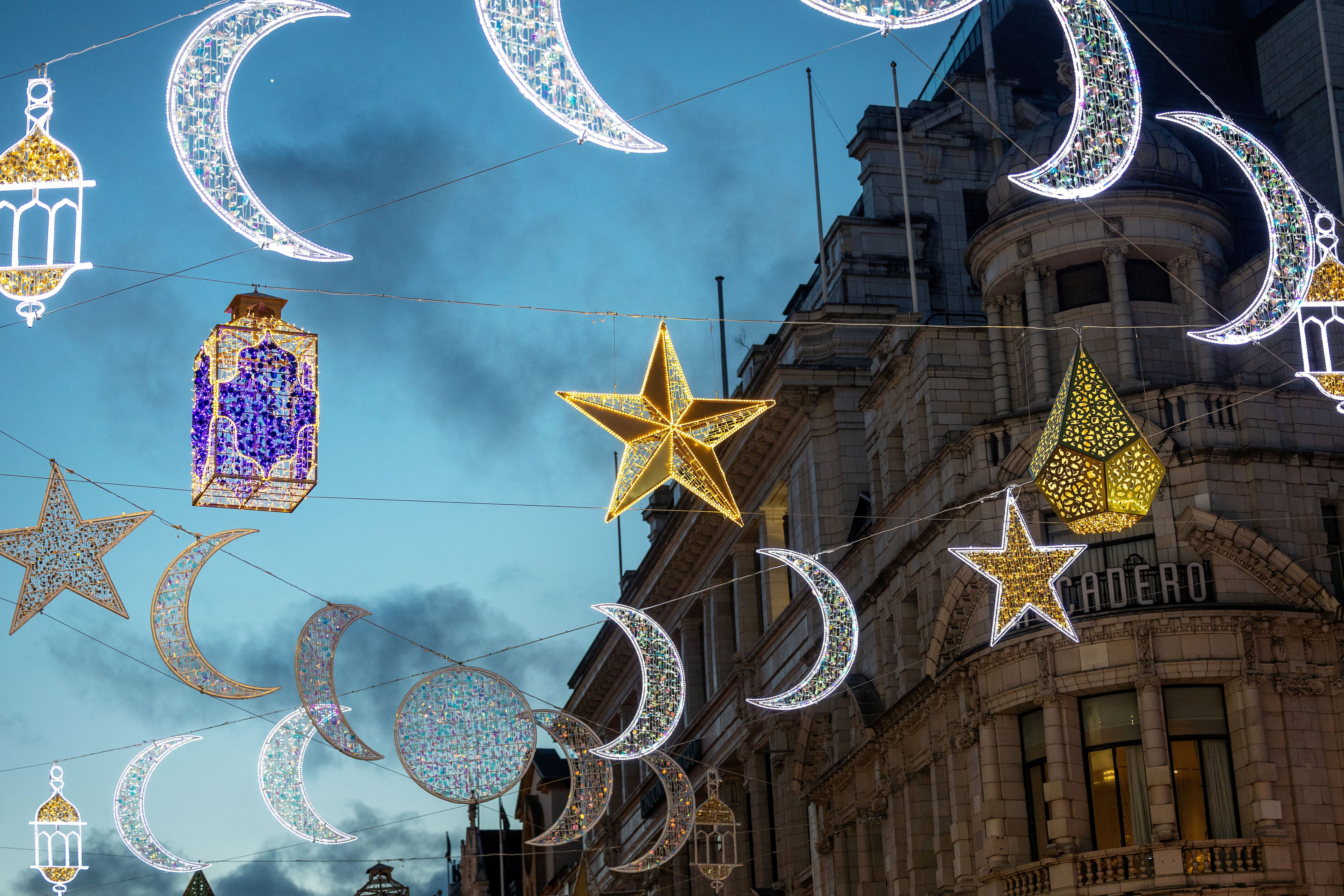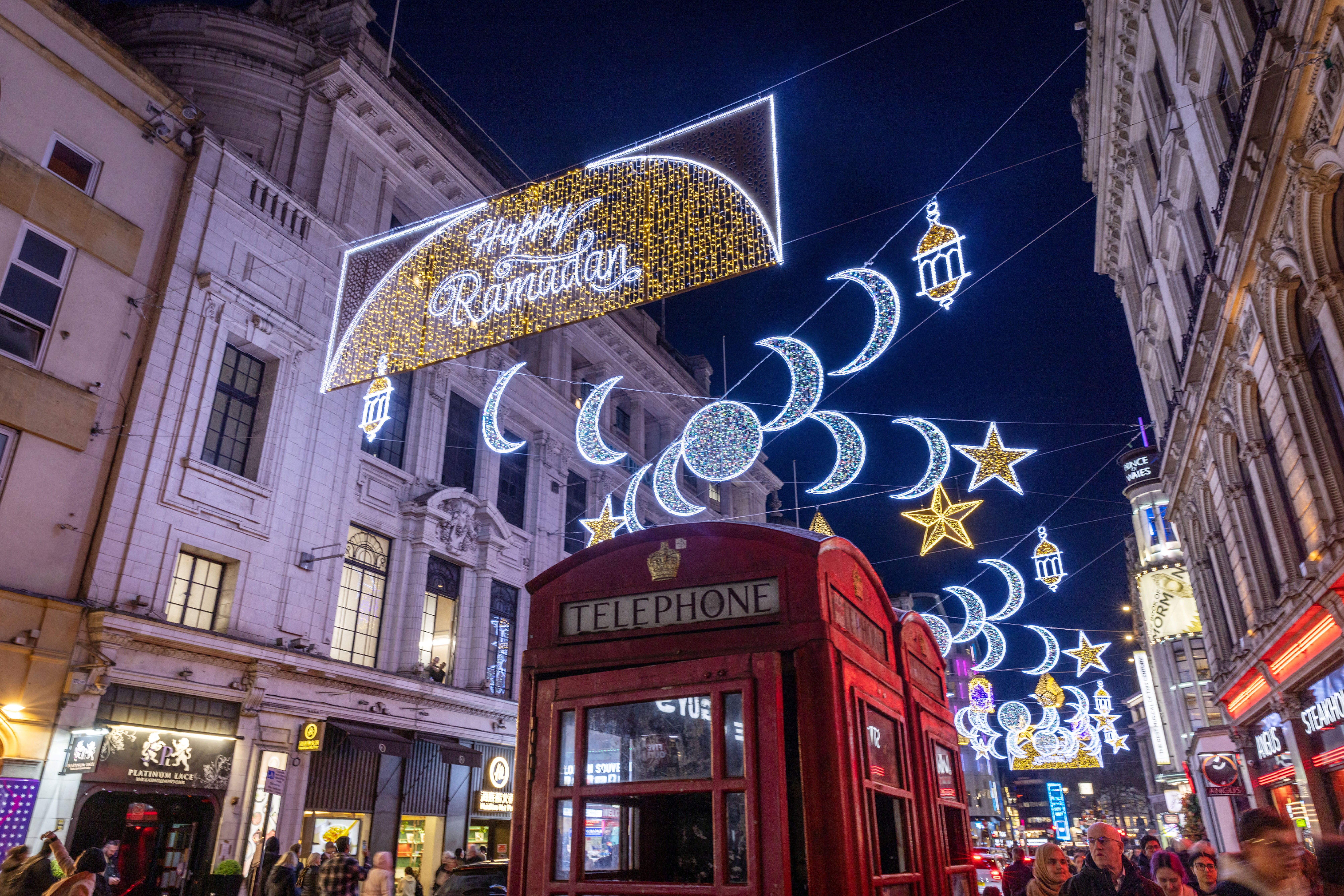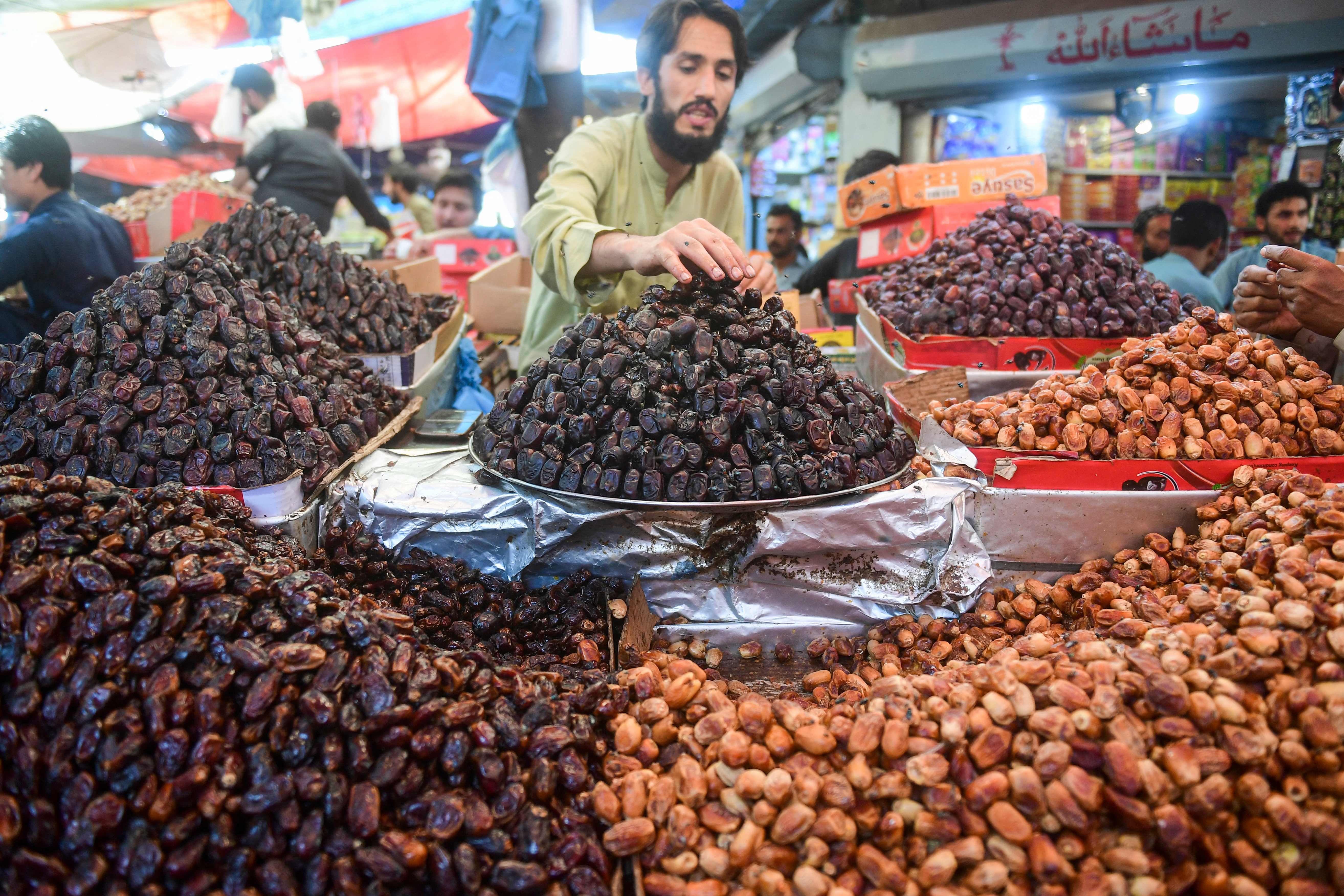Ramadan begins in UK as Muslims welcome holy month
Muslims fast between dawn and sunset during the holy month

Muslims in the UK have welcomed Ramadan as the call to prayer at sunset on Thursday marked the start of the holy month.
The sacred month is observed with fasting from just before dawn until sunset.
In the early hours of the morning, Muslims fuel their bodies with a pre-dawn meal called suhoor and the fast is broken traditionally with dates and a meal, known as iftar.
Between these hours, no food or drink (including water) is consumed at all.

This year, the time of iftar in the UK will be between 6.20-30pm for the first few days of Ramadan. It will then be an hour later from Sunday 26 April when the clocks go back.
Ramadan usually lasts 29 or 30 days and its ending is marked by the celebration of Eid-ul-Fitr.
Eid is expected to fall on either 21 or 22 April, and will be confirmed by the sighting of the new crescent moon.
Fasting is one of the five pillars of Islam, along with the belief in one God (shahada), prayer (salah), performing the pilgrimage (hajj) and giving alms (zakat).

Although most people tend to think mainly of fasting when they think of Ramadan, the sacred month also has a special relationship with the Quran.
Muslims believe the Quran was revealed to the Prophet Muhammad (peace be upon him) by the angel Gabriel on the 27th night of the month, also known as Laylat-ul-Qadr, the Night of Destiny/Power.
For this reason, many Muslims try to complete one full reading of the Quran during the month and exert themselves in superior acts of worship.
It is also a time where believers flock to the mosques to attend the night prayer tarawih. Most mosques aim to complete the recitation of the entire Quran through the duration of the tarawih prayer over the course of the month.
For all those observing the sacred month, Ramadan Mubarak!
Join our commenting forum
Join thought-provoking conversations, follow other Independent readers and see their replies
Comments


Bookmark popover
Removed from bookmarks